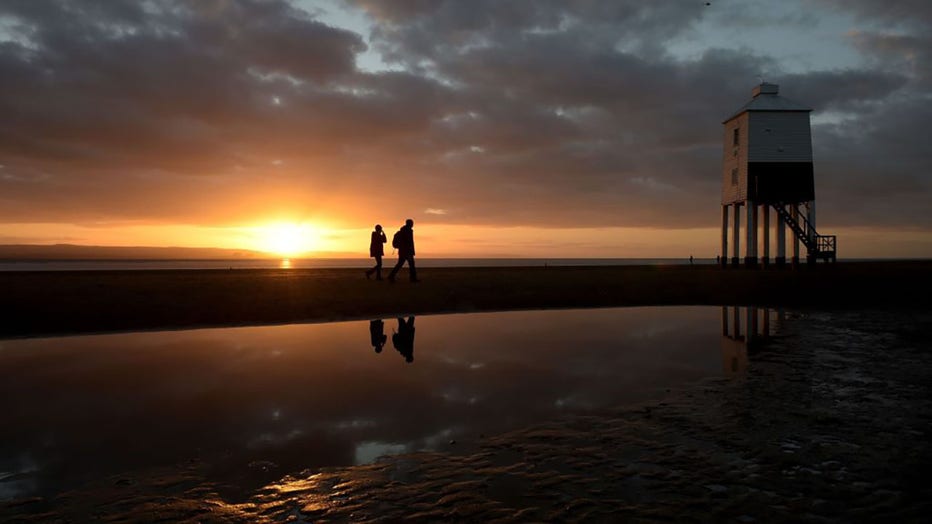Daylight saving time 2024: When will we 'fall back?'

Impacts of Daylight Saving Time on health, sleep
Neuroscientist Dr. Karin Johnson joins LiveNOW's Andy Mac discuss Daylight Saving and the potential impacts.
Across the U.S., time changes happen twice a year in many states. Clocks jump forward one hour in the spring to begin daylight saving time, and then "fall back" an hour in the fall to end it.
That means early-risers with an extra hour of rest before alarm clocks go off, but the sun will set in the evening before many workers even leave the office.
RELATED: When is the first day of fall 2024? What to know about the autumnal season
Here’s what to know about the end of daylight saving time 2024:
What is daylight saving time?

FILE - People walk past the lighthouse at Burnham-on-Sea, Somerset. (Photo by Ben Birchall/PA Images via Getty Images)
Daylight saving time is defined as a period between spring and fall when clocks in most parts of the country are set one hour ahead of standard time. According to federal law, it always starts on the second Sunday in March and ends on the first Sunday in November.
The practice of falling back in the U.S. started in 1918 during World War I as a way to conserve fuel. By moving the clocks ahead an hour, backers believed the country could divert a bit of coal-fired electricity to the military instead of using it for an hour of home power. It was reenacted in World War II.
When will the time change this fall?
Daylight saving time 2024 began on March 10, 2024, when the clocks jumped from 2 a.m. to 3 a.m. It lasts until early Sunday, Nov. 3, 2024, when 2 a.m. becomes 1 a.m.
Which states don’t observe daylight saving time?
The list of states and territories that won’t be changing their clocks on Nov. 3 includes:
- Hawaii
- Arizona
- American Samoa territories
- Guam
- Northern Mariana Islands
- Puerto Rico
- U.S. Virgin Islands
Is daylight saving time observed outside the US?
Yes. There are other countries that observe daylight saving time.
Almost all of Europe, except Armenia, Azerbaijan, Belarus, Georgia, Iceland, Russia and Turkey, participate in daylight saving time.
In addition, parts of Canada, Latin America, the Caribbean, and Australia observe it. Egypt is the only country on the African continent to observe daylight saving time.

